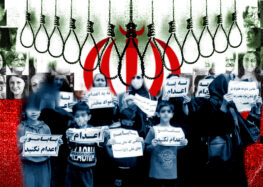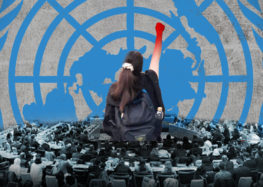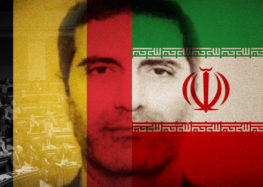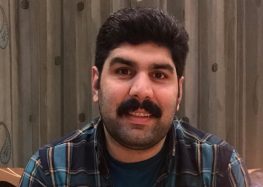Nobel Laureate’s Call for Resignation of Iran’s Judiciary Chief Puts Spotlight on Rampant Judicial Abuses
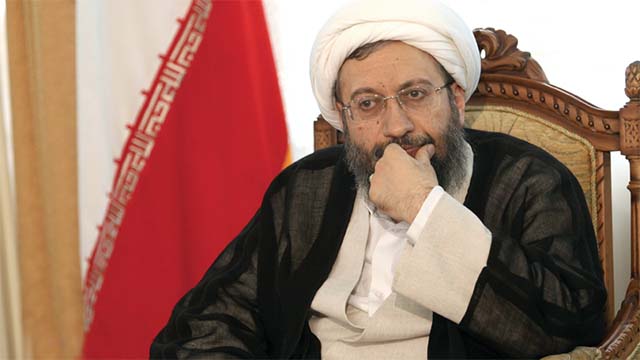
January 6, 2017—The call for the resignation of Iran’s top judicial official, Sadegh Larijani, by the prominent Iranian human rights lawyer and Nobel Laureate Shirin Ebadi, has brought renewed attention on the systematic abuses of rights committed by Iran’s Judiciary.
Ebadi’s January 4 statement comes during a wave of life-threatening hunger strikes by political prisoners in Iran desperate to draw attention to their unlawful imprisonment and ill-treatment.
The Campaign for Human Rights in Iran welcomes Shirin Ebadi’s statement, urges the immediate review of the cases of all prisoners held under security-related charges, and condemns the Judiciary’s systematic violations of the rights of Iranian citizens.
“How many more political prisoners will have to put their lives on the line before Iran’s Judiciary is held accountable for its actions? How many more years will lawyers sit behind bars for defending their clients, or opposition leaders remain jailed in their homes without charge?” asked Hadi Ghaemi, executive director of the Campaign.
“This is a judicial system running riot over the law with complete impunity,” Ghaemi said. “The international community should join Iranians in speaking out against these abuses.”
The hunger strikers have gained attention because of the duration of their strikes and resulting danger to their lives. Civil rights activist Ali Shariati began his hunger strike on October 31, 2016, at the start of his five-year prison sentence for protesting against acid attacks on women. Saeed Shirzad, a rights campaigner serving a five-year sentence in Rajaee Shahr Prison, entered the 31st day of his hunger strike on January 6. Nizar Zakka, a Lebanese national with U.S. residency status and internet advocate, went on hunger strike in Evin Prison on December 8 to protest his 10-year sentence on unspecified national security charges. Judiciary officials have not responded to requests from his lawyer and family to allow him access to the International Red Cross and consular officials.
The immediate imperative is to address the cases of the hunger strikers, who have risked their lives to call attention to their unjust imprisonment. But violations of basic human rights are rampant throughout the Iranian judicial system.
Individuals are routinely arrested for the peaceful expression of their views or beliefs, and held for long periods without charge or access to a lawyer. They are prosecuted and convicted in brief, closed trials frequently on the sole basis of “confessions” that have been elicited during interrogation under conditions of extreme pressure and isolation.
In a March 2016 statement, then UN Special Rapporteur for Iran, Dr. Ahmed Shaheed stated, “Fundamental problems…exist with regard to the due process and fair trial rights of the accused.” He noted he had received “frequent and alarming reports about the use of prolonged solitary and incommunicado confinement, torture and ill-treatment, lack of access to lawyers, and the use of confessions solicited under torture as evidence in trials.”
Hardline judges well-known for their harsh sentences are consistently chosen to preside over security-related cases, calling into question the independence of the Judiciary, and there are numerous and consistent reports by former detainees that interrogators told them their charges and sentences well before their trials.
The UN Special Rapporteur’s 2014 report on Iran noted that judges of the Revolutionary Courts were heavily influenced by security and intelligence organizations, and reported threats, intimidation, detention, and prosecution of Iranian lawyers who tried to inform the court of their clients’ confessions against themselves under duress while in custody.
In addition, once in prison, political prisoners are subjected to especially inhumane treatment—including the denial of critical medical care.
In April 2016, a group of UN human rights experts sharply criticized Iran over this issue, stating “The condition of several prisoners of conscience with serious health problems has been exacerbated by their continued detention and by repeated refusals to allow their access to the medical facilities and treatment.”
The experts added the situation was especially unacceptable given they had been “arrested, detained and convicted purely for their peaceful exercise of their fundamental freedoms and rights.” Despite their repeated efforts to engage the Iranian authorities on this issue, the UN group said “We regret that the government has so far failed to properly investigate these allegations and take the necessary measures.”
Omid Kokabee, the young physicist imprisoned for over five years for refusing to work on military research for Iran, lost a kidney to cancer after prison authorities refused his repeated requests for medical treatment.
In an interview with the Campaign, Ebadi, who was Iran’s first female judge before being forced to resign after the 1979 Islamic revolution, and who founded the Defenders of Human Rights Center (DHRC) in Iran in 2002 only to be forced into exile in 2009, said, “The system is broken and the final responsibility rests with its head…Mr. Larijani must accept his incompetence and resign.”
“Under Iranian law, the Judiciary is responsible for the country’s prisoners and its prisons. It is high time the Judiciary chooses its master; either it is the intelligence and security agencies who answer only to supreme leader Khamenei, or it is to the law,” said Ghaemi.

